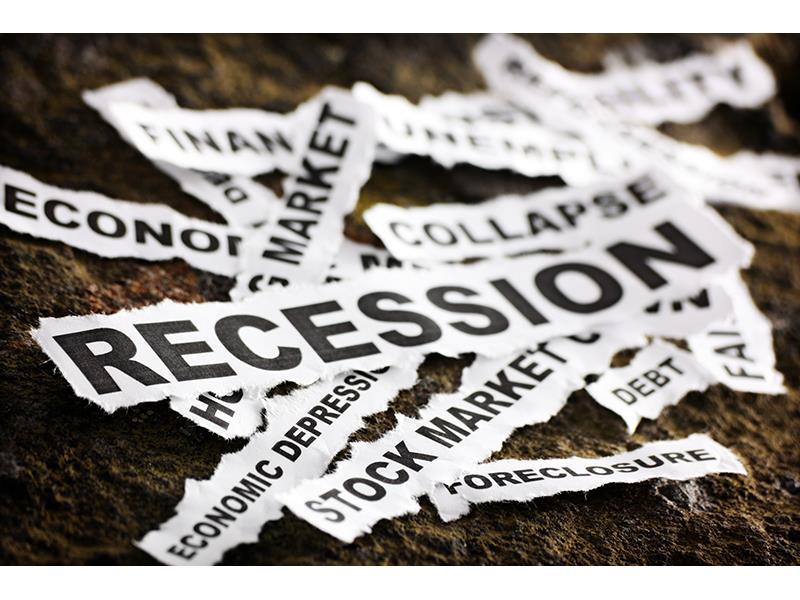United States – We’re Going to Have One ‘Whopper’ of a Recession in 2023
KEY POINTS:
- According to Steve Hanke, a professor of applied economics at Johns Hopkins University, the United States will enter a recession next year, and it will not be due to increasing interest rates.
- “We will have a recession because we’ve had five months of zero M2 growth, money supply growth, and the Fed isn’t even looking at it,” he told CNBC’s “Street Signs Asia” on Monday.
- Meanwhile, Hanke predicts that inflation will stay high due to “unprecedented growth” in the US money supply.
According to Steve Hanke, a professor of applied economics at Johns Hopkins University, the United States will enter a recession next year, and it will not be due to increasing interest rates.
“We’re going to have a recession because we’ve had five months of zero M2 growth, zero money supply growth, and the Fed isn’t even looking at it,” he said on CNBC’s “Street Signs Asia” on Monday.
Market participants use the broad M2 measure to forecast overall money supply and future inflation. M2 consists of cash, checking and savings accounts, as well as money market securities.
Hanke warned that the money supply has been stagnant in recent months, which is likely to lead to an economic slowdown.
“We’re going to have one whopper of a recession in 2023,” he said.
Meanwhile, inflation is going to remain high because of “unprecedented growth” in the money supply in the United States, Hanke said.
Historically, there has never been “sustained inflation” that isn’t the result of excess growth in the money supply and pointed out that the money supply in the U.S. saw “unprecedented growth” when Covid began two years ago, he said.
“That is why we are having inflation now, and that’s why, by the way, we will continue to have inflation through 2023 going into probably 2024,” he added.
CNBC reported in 2020 that an increased money supply could lead to significant inflation.
“The bottom line is we’re going to have stagflation — we’re going to have the inflation because of this excess that’s now coming into the system,” he added.
“The problem we have is that the [Fed Chair Jerome Powell] does not understand, even at this point, what the causes of inflation are and were,” Hanke said.
“He’s still going on about supply-side glitches,” he said, adding that “he has failed to tell us that inflation is always caused by excess growth in the money supply, turning the printing presses on.”
Powell stated in his policy speech at the annual Jackson Hole economic symposium on Friday that rising inflation in the United States is a “product of strong demand and constrained supply, and that the Fed’s tools work primarily on aggregate demand.”
‘Sacrificial Lamb’
Rosenberg Research president David Rosenberg expressed concern about the Fed’s path, but in a different way. He stated that the Fed is now “more than happy” to overtighten to swiftly get inflation down.
“Overtighten means that if the economy slips into a recession, you know — so be it,” he told CNBC’s “Squawk Box Asia” on Monday, adding that Powell said this is short-term pain for long-term gain.
He expressed “disappointment” that the Fed is chasing lagging measures such as the unemployment rate and inflation but said that the Fed is “not going to take any chances” after being “thoroughly embarrassed” for labelling inflation temporary.
″Powell said the economy will be, near term, a sacrificial lamb,” Rosenberg said.
“I think this Fed, after being on the wrong side of the call for the past say 12 to 15 months, are going to need to see probably at least six months of intense disinflation in the price data before they call it quits,” he added.
Implications For The US Economy
Ultimately the Federal Reserve is a very blunt instrument, they control the money supply and interest rates. The raising of rates function is to reduce spending. Commercial and personal credit is restricted. Monetary stimulus is tightened. The general idea is that the economy slows down and everyone spends less and is inclined to save because of higher interest rates. Lesser spending decreases demand so prices begin to fall. Due to the massive inflation of energy and food, discretionary spending becomes limited causing belt-tightening all around.
As The Wealthy Continue to Spend – Everyone Pays The Price
What the Fed fails to see or even acknowledge is the fact that the top two-fifths of income distribution in the US accounts for 60% of consumer spending, while the bottom two-fifths account for a mere 22% according to the US BLS (Bureau of Labor Statistics).
Rising interest rates disproportionately affect the poor, increasing the cost of non-expendable commodities such as food, housing, and the payment of credit cards and other loans. The wealthy can continue to spend, while others must make more difficult economic decisions.
Online sources: cnbc.com, ft.com, thebalance.com All opinions and views expressed or suggested by the Digital Zeitgeist are not necessarily the same opinions and views held by or suggested by GPM-Invest plus any and all partners, affiliates, parties, or third parties of GPM-Invest. Any type of media distributed by GPM-Invest IS NOT financial advice. Please seek advice from a professional financial advisor

